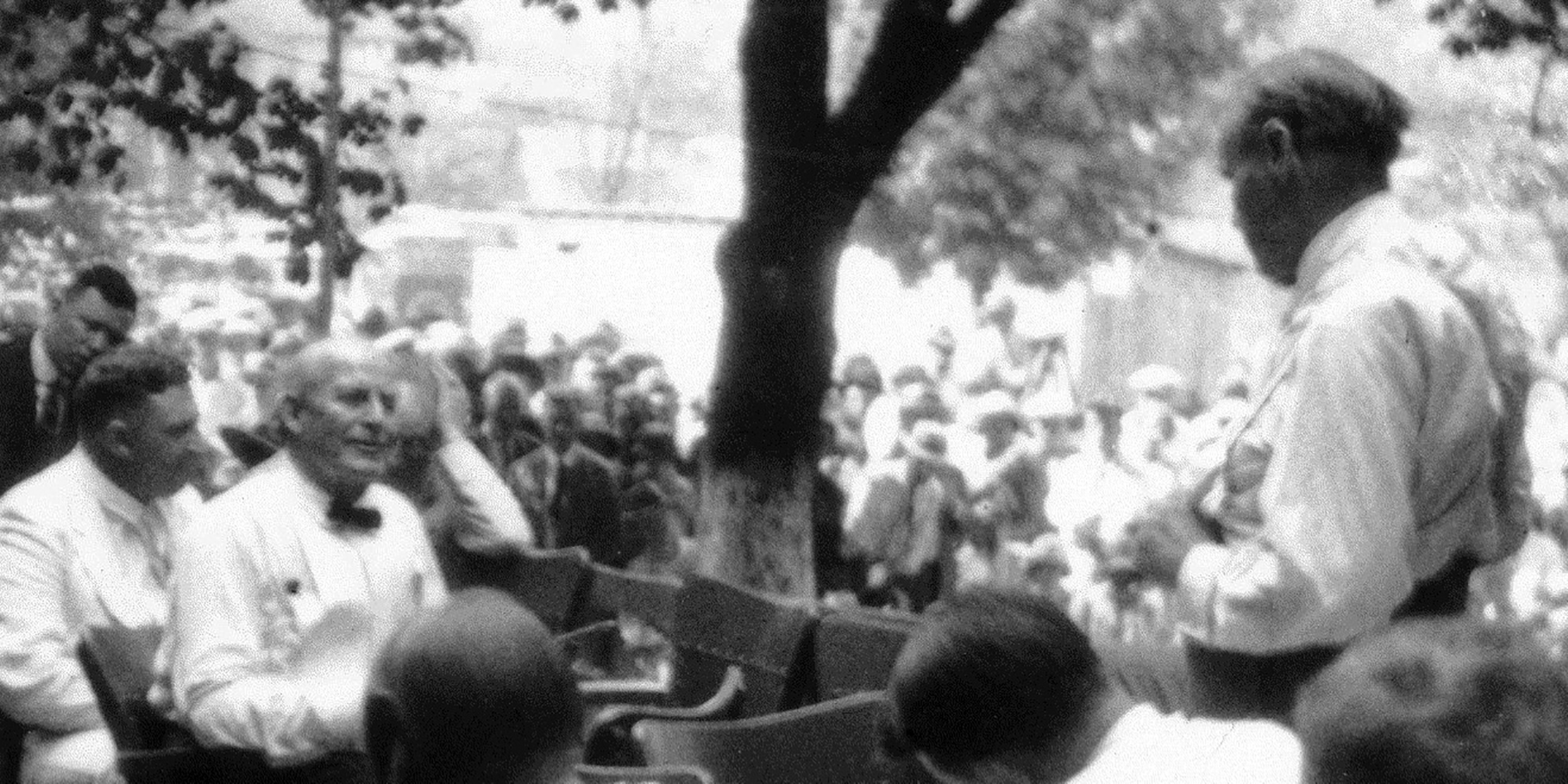Originally published 6 March 1995
Here’s a statistic that may surprise you.
According to a 1993 Gallup poll, 47 percent of all Americans believe that God created human beings pretty much in their present form sometime during the past 10,000 years.
Only 46 percent believe that humans evolved over millions of years from less-advanced forms, either with or without divine intervention.
A decade ago, these numbers were reversed, with creationists a minority.
And the debate over beginnings is drawing still closer to home.
Christian fundamentalists in Merrimack, N.H., want the biblical story of creation taught in the schools as a viable scientific alternative to evolution.
The key word here is “scientific.”
In a Globe story, electrical engineer David Ham is quoted as saying: “Creation science can be taught without quoting the Bible if we just go with the facts.”
Norman Phillips, a former MIT professor, counters with: “We don’t teach astrology with astronomy. We don’t teach witchcraft with medicine. We don’t teach the science of the world with the first chapter of Genesis.”
I grew up in the Bible Belt, not far from Dayton, Tennessee, the site of the famous Scopes Monkey Trial. Early on I came to New England so that my children could be raised in the thoughtful tradition of the Adamses, Emerson, Thoreau, Agassiz, and Gray. Now the Bible Belt has been loosened to encompass the expanding girth of fundamentalism, just in time for my grandchildren to hear in science class that the world is 10,000 years old.
My first reaction to the Merrimack story was to rehearse once again why “creation science” is not science.
Science is not a collection of statements about the world (e.g., “matter is made of atoms,” “light travels at 186,000 miles per second,” “all complex forms of life evolved from simple beginnings”). Rather, science is a web of relationships. Our confidence in any scientific statement derives entirely from the resilience of its connections with the rest of knowledge.
Science is not a smorgasbord of truths from which we pick and choose. Science is the ensemble. Start snipping away whatever bits don’t agree with one’s particular religion and soon the whole fabric is in tatters.
If the world is less than 10,000 years old, as creationists say, then virtually everything we know about astronomy, physics, chemistry, geology, and biology is called into question. To be replaced by — what? A few questionable “footprints” down in Texas where men supposedly walked with dinosaurs?
But why am I saying this here? Most readers of the Globe science pages won’t need convincing. And people who accept a literal interpretation of Genesis believe in a surer path to truth than science — which is of course their right.
Meanwhile, a half-baked scam called “creation science” attracts increasing numbers of believers. School boards are taken over by folks who learned their science from supermarket tabloids and radio talk shows. Textbook publishers back away from teaching evolution and human pre-history for fear of losing sales.
Even in New England the pressure is on to bring Genesis into the public schools.
My second reaction to the Merrimack story was to say: Let’s call their bluff.
Let the National Academy of Sciences and the Christian Coalition each produce a series of high-school-level videos, presenting the scientific evidence for evolution and biblical creation respectively. No quoting scriptures. No recourse to revelation. Just go with the facts.
Comparing the scientific evidence for a literal Genesis to the scientific evidence for evolution would be like comparing a child’s nonsense rhyme to the works of Shakespeare, or like comparing an almost empty spool of thread to the Bayeux Tapestry.
It would be a wonderful opportunity to show the kids what science is.
And isn’t.
And while we’re at it, we could convey the spirit that motivated Darwin himself, as expressed in the first edition of The Origin of Species:
“There is a grandeur in this view of life, with its several powers, having been originally breathed into a few forms or into one; and that, whilst the planet has gone cycling on according to the fixed law of gravity, from so simple a beginning endless forms most beautiful and wonderful have been, and are being, evolved.”
Unfortunately, calling the creationists’ bluff would confer an unwarranted legitimacy upon “creation science,” and open the door for adherents of other pseudosciences (astrology, parapsychology, UFOlogy) to ask for a place in the curriculum. For the time being, enlightened communities should continue to fight the constitutional battle in the courts.
The battle is not between science and religion. It is not between evolution and theism. It is between science and a ravel of disconnected religious assertions claiming to be science.
If the battle is lost, all of America may become the Dayton, Tennessee, of the 21st century.



